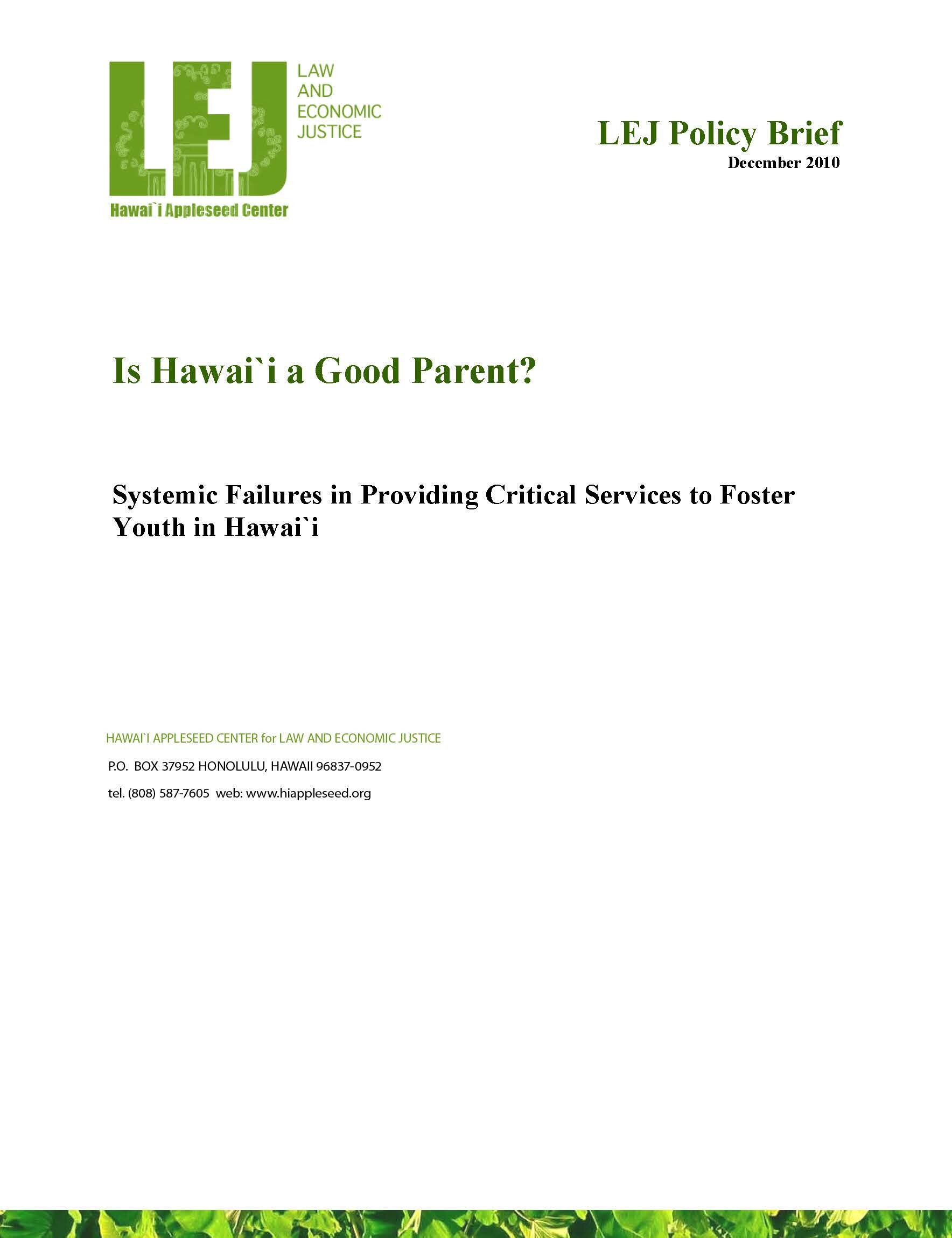Is Hawaiʻi a Good Parent?
Systemic Failures in Providing Critical Services to Foster Youth in Hawaiʻi
Executive Summary
Children in foster care often come from difficult pasts and have uncertain futures. Lacking alternatives, they are dependent upon government agencies to provide them with crucial services. Such services are not only necessary to promote and safeguard the current health and wellbeing of these children, but also to ensure that they have adequate support to become well-adjusted, flourishing adults.
For several years some children’s advocates in Hawaiʻi have claimed that a variety of services required by youth in foster care were not being properly provided by the Department of Human Services (DHS) and/or the Department of Health (DOH). In particular, Lawyers for Equal Justice (LEJ) had been told that the provision of mental health services was an area in need of dramatic improvement.
Recognizing the significant effect inadequate services would have on Hawaiʻi’s youth in foster care, LEJ decided to acquire more information on the provision of services with the goal of identifying systemic weaknesses. Depending upon these results and further research, LEJ may decide at a future date to initiate advocacy efforts including possible litigation to strengthen the child welfare system.
During the months of June and July 2010, LEJ contacted 26 community members possessing direct experience with and knowledge of youth in foster care and their ability to access and receive government services. These individuals were predominantly guardians ad litem (GALs), however, a few were voluntary guardians ad litem (VGALs) or foster parents (also called resource parents); one was a social worker.
LEJ Executive Director Victor Geminiani, in conjunction with Danny Pollard from the Honolulu office of the Legal Aid Society of Hawaiʻi generated the contact list. Contacts were either affiliated with Legal Aid Society of Hawaiʻi or professional associates.
The decision to focus primarily on GALs was motivated by a desire to speak with an accessible group of professionals that would be able to provide a wide range of potentially unbiased information. Information was gathered through relatively unstructured, informal conversations providing interviewees with the opportunity to reflect upon their experiences, and share their thoughts about particular cases or overarching issues.
Of the 26 individuals contacted, 20 (77 percent) were available for interviews. Interviews were predominantly conducted in person or over the phone, though a few participants submitted email responses.
The experience of interviewed GALs ranged from less than 1 year to more than 20. Their number of current foster care cases ranged from 0 to 37. While most interviewees were based on Oʻahu, three were from Hawaiʻi Island (Kona and Hilo), three were from Maui, and two were from Kauaʻi.
This report is divided into four parts. Parts A and B summarize the results of these interviews. Part C discusses the negative impact of delayed and inadequate services on youth in foster care. Part D presents a brief discussion of the federal laws governing issues raised by interviewees and makes suggestions for further research. To respect the confidentiality of individuals interviewed for this project, identifying citations have been redacted.

